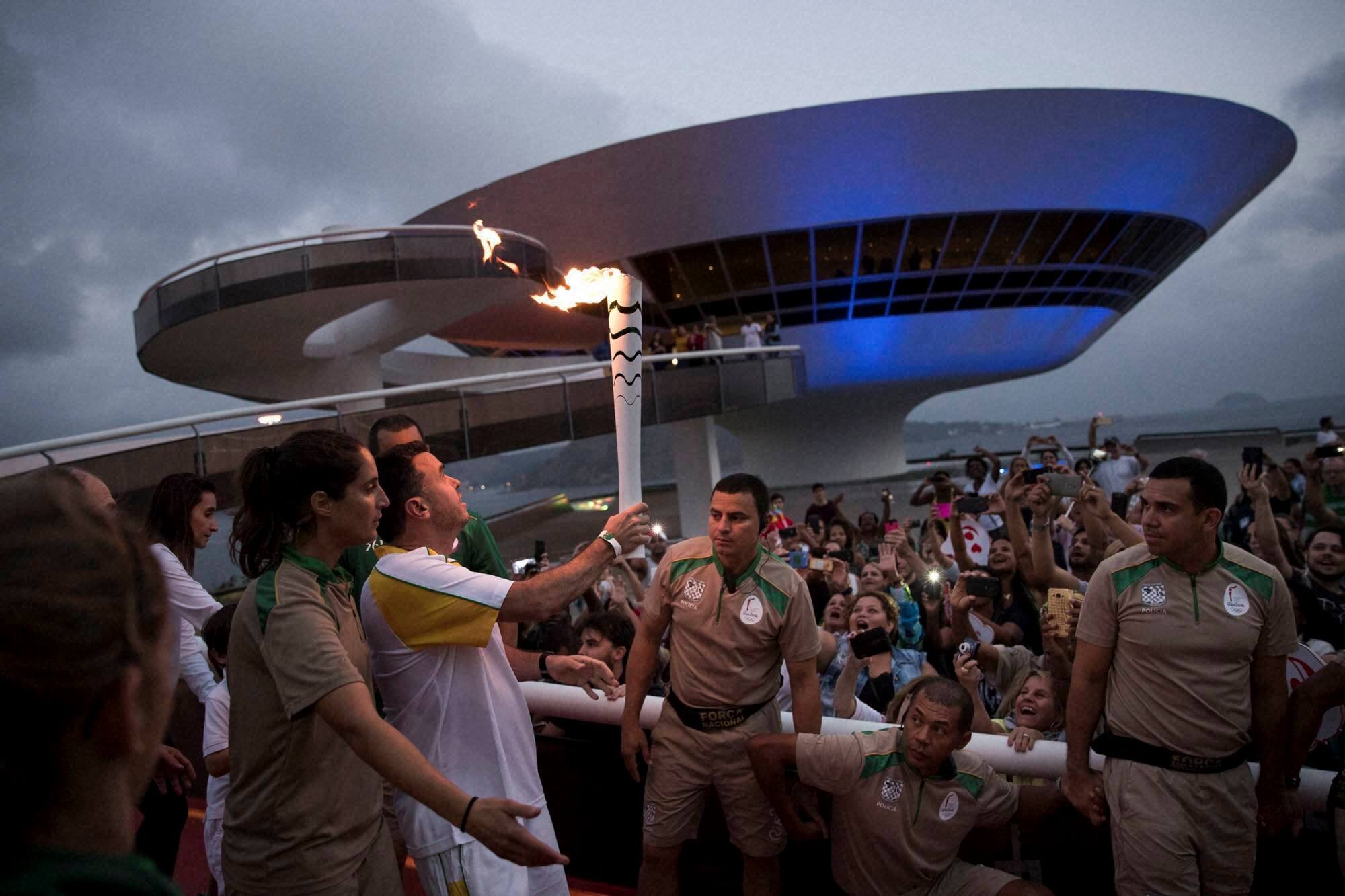Tudo Bem! It’s Brazil.
The biggest sporting show on earth – the Olympics – is happening in South America for the first time, but the question, even mere hours before the Games kick off is this – is Brazil ready?
A lot of news ink has already been spent in telling the world about the terrible shape Brazil is in and why these Olympics are such bad timing, but then they forgot the Carioca spirit of ‘Tudo Bem’ which would loosely mean “it’s okay”. Just like it did two years back during the FIFA World Cup, Brazil is getting it together once again – through it’s famous spirit and insatiable thirst to succeed in sport.
Arrive at one of the busiest terminals in São Paulo, and you know it’s Olympic time when volunteers usher in teams and officials with a smile. São Paulo will be one of the host cities for the football matches and the Pacaembu stadium is housing an exhibition on Olympic football history. Since that 7-1 loss to Germany as host city of the World Cup in 2014, Brazil’s national team hasn’t given them much to smile about — but in Neymar they trust — the man who missed that humiliation through a broken back skipped the Copa America in the quest for the evasive Olympic gold. He has a chance at redemption, and so does Brazil.
—
The signage and flurry of last minute activities is pretty evident as you drive into Rio. The stadium is ready but transport and other facilities will be touch-and-go. Athletes like those from Australia are not happy with the village, complaining about plumbing and electricity, so it’s easy to imagine a Brazilian version of Suresh Kalmadi — and just like it was during the Commonwealth Games in Delhi in 2010, local news networks are waiting for the big corruption story.
The other notable part is the stark difference between the favelas (slums) and the glitzy neighborhood called Barra da Tijuca. So unlike Beijing in 2008, Rio has made no effort to hide the less picturesque side of the city. Democracy is also responsible for the fact that a very small percentage of the population can speak in English and any outsider must have passable knowledge of Portuguese. No four-year compulsory English course for them like in China, but if the Portuguese could conquer large parts of the world the Carioca can surely host an Olympics. So if you are headed to Rio, get a crash course from the nearest Goan Granny – the greetings will help you.

When you eventually do manage to speak to the locals, you can feel a sense of hope they have from the games — 20 days that will make them forget about a corrupt government and an economy on the abyss.
—
Eduahiljo sells sugarcane juice while his partner and her friends offer the famous fried pastels. He hopes he can make some money just like he did during the World Cup but says that tourists are yet to stream in. High rentals and low income have forced him to put in extra work which he hopes will be worth the effort.
At the volunteers’ centre in Cidade Do Samba, Derek Oliveira is helping volunteers get their credentials. He has taken time off from his day job to volunteer at the games because being a Carioca is about being helpful and the Olympics are a perfect opportunity about showcasing their Cidade Marvelosa as Rio is known.
For every Derek, there’s a Lucas – who is a real estate professional. Having worked in America, he talks about how Brazil has lowered its poverty index just to show the world it had uplifted a significant percentage of its poor – basically a con. He wants to know if India will ever host the games, a question to which I had no answer given that India doesn’t lack the ambition but is skeptical of the so called side effects.
Yet Lucas has bought his tickets — and figures that for 15 days, the Brazilians will let their hair down and put on one fantastic party.
So it’s true, the 2016 Olympics will only be a band aid for a country that needs surgery. But the athletes, the volunteers and the spectators won’t know that. For them, the ever smiling Carioca will always be there with Brazil’s undying spirit.
Feature image source: AFP

















